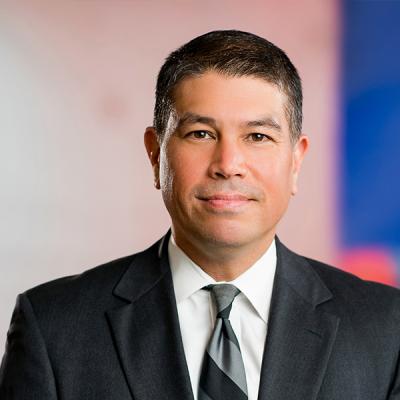Nvidia CEO Hails AI as America’s Next Industrial Revolution and States Lead Push for AI Safety — AI: The Washington Report
Main Points:
- Nvidia CEO Jensen Huang compared the AI boom to past industrial revolutions driven by steam, electricity, and information technology, calling AI the next major leap forward. He credited President Trump’s reindustrialization policies and tariffs for boosting domestic manufacturing and semiconductor production. Nvidia partnered with Taiwan Semiconductor Manufacturing (TSMC) to produce the first US-made Blackwell wafer, the base of its most advanced AI chips, and projected $500 billion in AI supercomputing infrastructure to be built in America.
- Huang praised Trump’s energy policies for enabling rapid AI growth and described Nvidia as the “engine” of the largest industrial revolution in history. He predicted new wealth will emerge from skilled trades — plumbers, electricians, and technicians — needed to build AI factories and data centers. Nvidia’s valuation recently topped $4 trillion, cementing its dominance in AI and semiconductors.
- At the same time, states like California, Utah, and Texas are leading on AI safety and privacy laws amid growing public concern. Senator Marsha Blackburn (R-TN) urged federal legislation to create a unified regulatory framework, emphasizing child safety, data transparency, and consumer privacy. She warned that AI oversight must evolve with technology to protect users and prevent Big Tech overreach.
Nvidia’s Jensen Huang Hails AI as America’s Next Industrial Revolution
Nvidia CEO Jensen Huang declared that the United States is nearing the beginning of a new industrial revolution driven by artificial intelligence. He stated that this development is like past revolutions powered by the steam engine, electricity, and information technology, calling AI the next major leap forward. Huang credited President Trump for his policies to “reindustrialize the Unites States,” particularly through new tariffs that have encouraged domestic manufacturing and rapidly advanced semiconductor manufacturing in the US.
Nvidia, the leading maker of semiconductors in the AI sector, also announced its partnership with Taiwan Semiconductor Manufacturing (TSMC) and their development of the first Blackwell wafer in the US. This is the foundation of the company’s most advanced AI chips and the first time such has been developed on American soil.
As the AI arms race continues and demand for infrastructure grows, Nvidia projects that approximately $500 billion worth of AI supercomputing technology could be manufactured and deployed in the US. This aligns with key implementations of the White House’s AI Action Plan to prioritize AI innovation through regulating federal land for data centers and energy sources, as we’ve written about.
Huang also praised President Trump’s energy policy and initiatives for allowing larger tech companies to scale AI operations rapidly. The Trump administration has pushed for increased development and use of fossil fuels, with rapid approval for related projects, including drilling for oil and natural gas on federal lands. This includes reduced support for renewable energy, as an executive order paused approvals and permits for wind and solar energy projects.
Huang described Nvidia as being at the “epicenter” of the AI revolution, as its chips are central to powering AI across industries. He referred to Nvidia as the “engine” of the largest industrial revolution in human history.
As demand for infrastructure grows, Huang suggested that the next generation of American millionaires may come from blue-collar fields as the construction and maintenance of “magnificent factories” for AI and chip production will require a large, highly skilled labor force. This includes plumbers, electricians, networking technicians, and other craft workers for factories for AI chip manufacturing, packaging, and assembly plants as well as supercomputer data centers and AI infrastructure hubs.
Earlier this year, Nvidia became the first company in history to reach a $4 trillion market capitalization, underscoring its dominance in AI and semiconductor technology.
States Lead Push for AI Safety as Calls Grow for Federal Regulation
States across the US continue to pass their own AI-focused safety and privacy laws as public concerns grow. Governor Gavin Newsom of California signed multiple AI and social media safety bills, including requirements for chatbot safeguards, mental health risk labeling on social media, and age verification in app stores. Other states — for example, Utah and Texas — have also enacted laws focused on the protection of minors from potential AI-related risks.
Senator Marsha Blackburn (R-TN) stated that federal action is “imperative” to create a uniform national regulatory framework and standard. Due to pushback by Big Tech, Congress has yet to pass preemptive federal AI legislation, with the progress instead being led by the states. Senator Blackburn emphasized the need for Congress to “say no to the Big Tech platforms” and reclaim leadership on digital safety. She has been a longtime advocate for child safety and protections with online usage.
Her particular concern is that the risks originally addressed in social media platforms now also extend to AI platforms and chatbots, emphasizing the need for a national online consumer privacy protection law. This would allow for users to have control over their digital data and protect the “virtual you.” Senator Blackburn also noted that large language models (LLMs) often train on users’ data without the users’ consent, calling for new AI transparency and consent safeguards. Lawmakers must regulate AI based on how it’s used, not just the specific technology. Senator Blackburn acknowledged that oversight must evolve alongside industry changes and product updates.
Parents have also grown alarmed by the increased use of and experiences with chatbots and digital platforms, with many delaying their children’s access to smartphones. Senator Blackburn argued that society needs clear digital age-safety rules, just as it has for physical safety, and suggests growing congressional momentum for federal-level AI accountability, especially around children’s safety and consumer privacy.
One Big Tech company said it plans to “safely relax” some restrictions, asserting that it is “not the elected moral police of the world.”
We will continue to monitor, analyze, and issue reports on these developments. Please feel free to contact us if you have questions about current practices or how to proceed.
Content Publishers
Alexander Hecht
Executive Vice President & Director of Operations
Christian Tamotsu Fjeld
Senior Vice President




